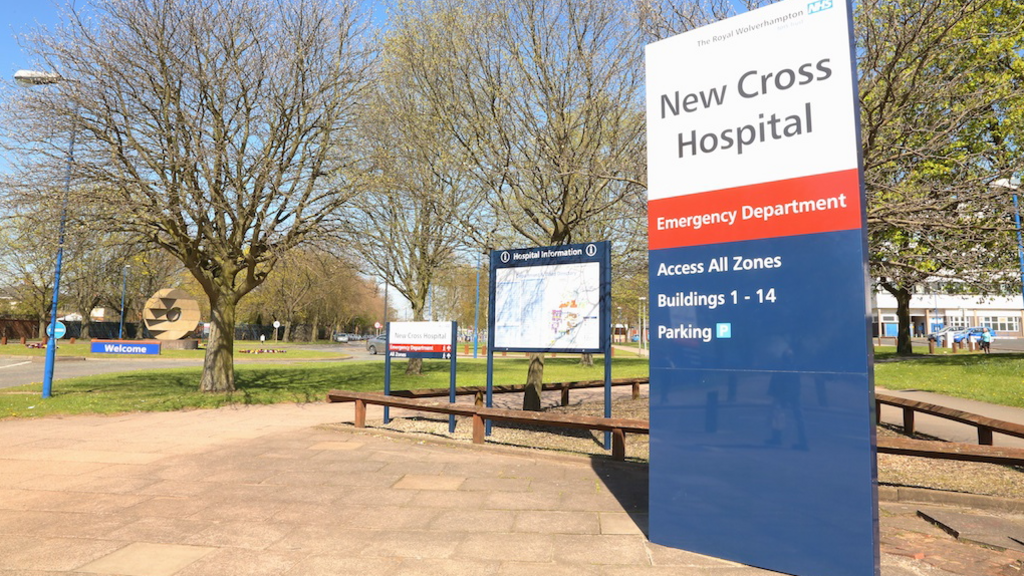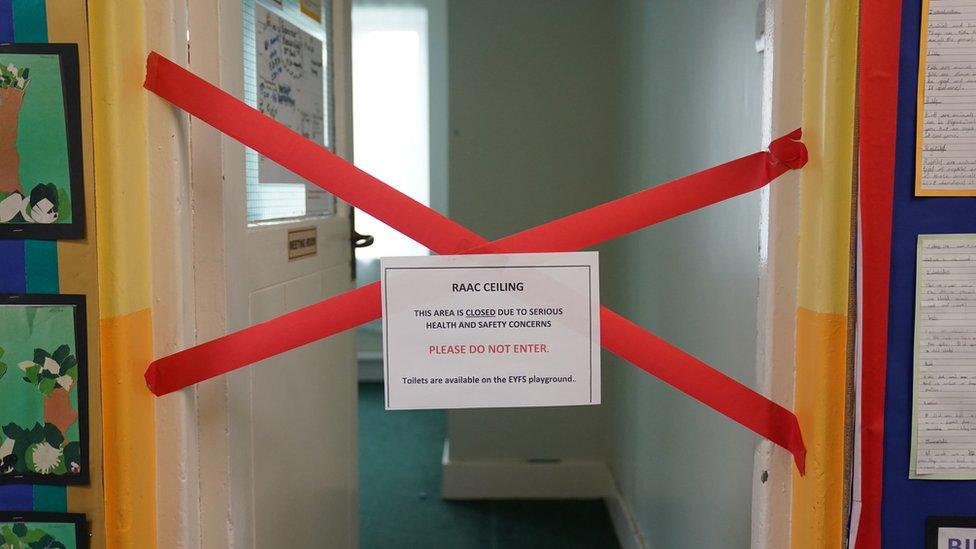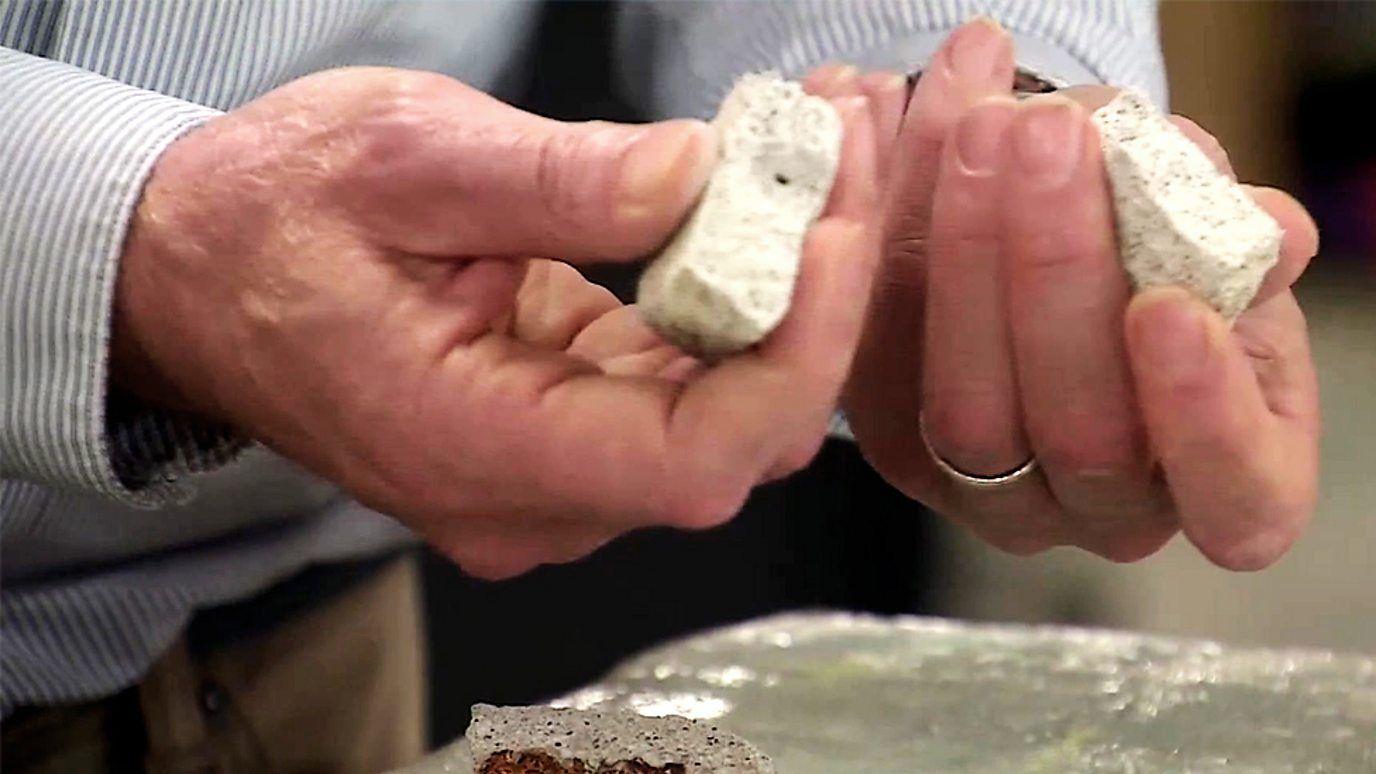Raac removed from two hospitals in region

New Cross Hospital in Wolverhampton and Kidderminster Hospital in Worcestershire have both had potentially dangerous concrete removed
- Published
Potentially dangerous concrete has been removed from two hospitals in the West Midlands.
New Cross Hospital in Wolverhampton and Kidderminster Hospital in Worcestershire have eradicated reinforced autoclaved aerated concrete (Raac), the government has confirmed.
Rowley Regis Hospital in Sandwell and the Queen Elizabeth Hospital in Edgbaston are also set to have Raac removal completed by the end of March 2026.
Raac is a lightweight concrete at risk of crumbling, used in the construction of many buildings between the 1950s and 1990s.
The Department of Health and Social Care said the work was backed by up to £440m this year, with hospitals across the NHS in England being upgraded at pace to remove the potentially dangerous concrete.
The government has pledged to eliminate all Raac from the NHS estate by 2035.
Raac has now been eradicated from seven NHS hospitals, which are:
Kidderminster Hospital, Kidderminster
Broomfield Hospital, Chelmsford
Homerton University Hospital, London
Scunthorpe General, Scunthorpe
Churchill Hospital, Oxford
Queen Victoria Hospital, East Grinstead
New Cross Hospital, Wolverhampton
A further 12 hospitals are due to be completed by the end of the financial year, namely April 2026, which are:
Countess of Chester Hospital
Royal Blackburn Hospital, Lancashire
Royal Hampshire County Hospital, Winchester
St Mary's Community Hospital, Portsmouth
Guildford Hospital, Guildford
Royal United Hospital, Bath
Rowley Regis Hospital, West Midlands
Queen Elizabeth Hospital, Edgbaston
Clatterbridge Hospital, Liverpool
Leigh Infirmary, Wigan
North Devon District Hospital, Barnstable
Stamford and Rutland Hospital, Stamford
The Department of Health and Social Care said that all hospitals where Raac has been identified have "robust mitigations" in place to make them stable and safe while they await its removal.
Simon Corben, director of estates at NHS England, said: "Keeping patients and staff safe is always our top priority, and we have been working closely with trusts to manage Raac safely and ensure the continuation of services while this essential work is taking place."
Get in touch
Tell us which stories we should cover in Wolverhampton
Follow BBC Wolverhampton & Black Country on BBC Sounds, Facebook, external, X, external and Instagram, external.
Related topics
- Published8 February 2024

- Published19 September 2023

- Published4 September 2023

- Published1 September 2023
